Reviews
Edmund Goulding
USA, 1946
Credits
Review by Veronika Ferdman
Posted on 01 May 2013
Source 35mm print
Categories TCM Classic Film Festival 2013
The alluring myth of the American Dream has soaked through the consciousness of this country to such a degree that, even as the economic system buckles and begs for a post-capitalist society, people - as if under mass hypnosis - desire improbable wealth. Thus, Edmund Goulding’s 1946 adaptation of Somerset Maughm’s The Razor’s Edge has lost none of its relevance, for it examines the existence of an aberration: Larry, a man who lives a life outside of the dream machine, who pursues the attainment of goodness, not dollars. He is dating Isabel, a wealthy Chicago socialite. He has an income of $3,000 a year and - despite pressures from Isabel as well as her snobby and acid-tongued uncle to step into the ranks of the white collar workers and make ever more money to support her lavish lifestyle - has no interest in wealth.
See, Larry has just returned from the war (wherein a friend saved Larry’s life at the expense of his own) and is facing an existential crisis. Taking Isabel’s suggestion that going away might help clear his head and set things straight, Larry goes to Paris. However, Isabel fully expects that the excursion will transform him into a good capitalist soldier. When Larry arrives in Paris where he frequents cafes, attends lectures, reads, thinks, and tries to save his soul. In short, he is the embodiment of the lost generation so beautifully written about and lived out by Hemingway.
Eventually, Larry’s self-seeking journey leads him to India, where he finds solace under the tutelage of a sage guru. But this process of enlightenment culminates in years of lost time, and he loses Isabel who loves herself and money too much to put up with his malady of the soul, preferring to instead marry a very rich man in Chicago.
Under Goulding’s direction Gene Tierney gives one of the finest performances of her career as Isabel, while Tyrone Power, as Larry, is a lesson in restrained expressivity, giving hints of the turbulence and ennui (and later peace) with the subtlest of facial expression. And has a man ever had more divinely velvety black eyebrows that bestow such authority and seriousness? Supporting turns by Anne Baxter (as Larry’s childhood friend), Clifton Webb, and Herbert Marshall (playing Somerset Maugham, who narrates the story) threaten to steal the scenes out from under Tierney and Power—as well as one another. It’s a marvelous ensemble.
Goulding sets many scenes amid parties taking place in crowded restaurants and clubs wherein swarms of bodies shuffle and dance. During one such scene the camera leisurely takes in the revelry as it travels across the tops of finely combed heads before locating Larry and Isabel; it is easy to get lost amidst so much decadence, to become ingratiated within the abundance of evening gowns and waist-coated wards. And Goulding certainly does not make this life seem colorless, dressing Tierney in increasingly more seductive outfits designed by her then-husband Oleg Cassini. But while there are no villains in this story, the hero is undoubtedly Larry’s increasingly beatific outcast. In not chasing after the American Dream, specifically standing against the rabidity of Isabel on that front, Larry is the only one who is able to achieve a rare state of grace. When we give up the pursuit of money and the material we find beauty and harmony. And god.
More TCM Classic Film Festival 2013
-
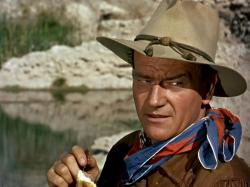
Hondo
1953 -
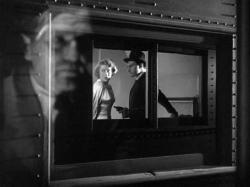
The Narrow Margin
1952 -

Giant
1956 -
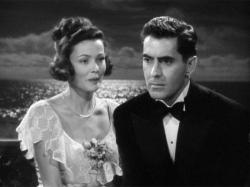
The Razor’s Edge
1946 -
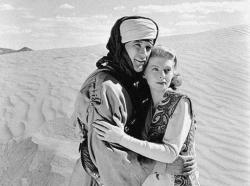
The Desert Song
1943 -
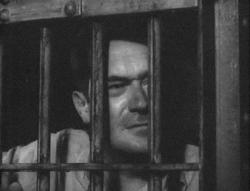
Try and Get Me
1950 -

It
1927 -

Scarecrow
1973 -
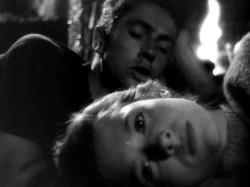
They Live by Night
1948
We don’t do comments anymore, but you may contact us here or find us on Twitter or Facebook.



